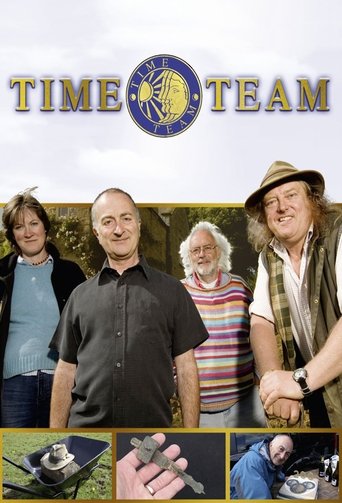
Rating:
0/10 by 0 users
The Induced Drag
Discusses induced drag which is directly connected with the principles of lift and demonstrates the vortex configuration caused by the wing tip. Illustrates with diagrams and models in the wind tunnel.
Writing:
- Sam Becker
Release Date:
Thu, Jan 01, 1959
Country: US
Language: En
Runtime: 29
Country: US
Language: En
Runtime: 29
Alexander Lippisch
Self
Season 1:

Dr. Alexander Lippisch introduces his series and the basic laws of fluid motion by means of new methods of visualizing the flow phenomenon. He also introduces the Smoke Tunnel (a type of wind tunnel) which is so designed as to make it possible to observe the entire flow field and to see clearly the action of the aircraft components. He shows how the first man-made flying vehicle, the kite, is a primitive application of the dynamic lift of the flat plate.

Dr. Lippisch points out the main problems of flight: lift and drag, control and stability, and propulsion. He explains the correlation between flow velocity, the local pressure, and the distance between streamlines. A picture of a light plane in flight is projected into the wind tunnel so that viewers may have a side view of such a plane and the streamlines around it. He explains velocity distribution and demonstrates how increasing speed diminishes the pressure on a surface and vice versa.

Dr. Lippisch's theme is the historical development of the flying machine. He begins his lecture with a short demonstration of Penaud's model. He shows how the invention of the cambered wing led to the first man-carrying aircraft, the glider. The next problem, the problem of control, was not conceived until the Wright Brothers began their pioneering glider experiments in Kitty Hawk, and Dr. Lippisch shows a scale model of their last (1902) glider and its control arrangement is demonstrated. As he shows film clips of the Wright Brothers' airplane, he explains the function of this first power aircraft.

The Wright Brothers solved three problems with their first plane: lift, control, and propulsion. The problem of lift was the one which caused the most controversial opinions between scientists and engineers. Dr. Lippisch traces the development of the cambered wing section until a streamlined cambered plate led to the development of the modern wing profile.

Even before the improved lift devices were designed, the stability and control problems had to be solved and further improvements incorporated into the original systems. Dr. Lippisch illustrates how the stability and control system of the Wright brothers' glider differs from the system on the conventional aircraft of today.

After the lift, stability and control problems were solved, a propulsive system was needed to make the aircraft fly. The first propulsion device - the propeller - is still in use today. Dr. Lippisch explains the design of the propeller and demonstrates the lifting propeller - the Helicopter Rotor.

Discusses and demonstrates the problem of drag created by friction and turbulence. Explains the need for a high ratio of lift to drag' to produce an aircraft with good performance characteristics. Illustrates with diagrams and models in the wind tunnel, also uses high speed photography of air movement over a wing in the wind tunnel.

Discusses induced drag which is directly connected with the principles of lift and demonstrates the vortex configuration caused by the wing tip. Illustrates with diagrams and models in the wind tunnel.

The first airplane to fly was what would be called today a Canard Type airplane; it had a horizontal stabilizer in front of the main wing. Today’s Conventional Type plane has the stabilizing surfaces are of the same size. Dr. Lippisch explains all three models. He also describes the Allwing Type plane which is made by combining wing and tail surfaces, sweeping the wing tips backward, and placing the control areas on the wing tips. He discusses the fundamental law of stability and demonstrates this on models in flight and in the Smoke Tunnel.

Explains the principles of lift. Uses the smoke tunnel to demonstrate the methods developed to produce wings with high lift capacity. Discusses stalling and how it is prevented.

Defines a vortex and explains its structure. Shows several types of vortex including the ring, tip and thermal vortex. Uses the smoke box, water tank, and motion pictures of tornadoes to illustrate how a vortex behaves.

"Man seems to have surpassed nature as he can fly faster and higher than the natural flying creatures. But further study of the flying habits of birds and insects is still necessary." Dr. Lippisch presents a discussion on the wing motion of birds and insects and how the texture and shape of the wings differ with the various birds and insects. Not only airborne animals apply the laws of fluid motion; the program also presents the propulsive systems of fish and shows the action of the fishtail-propeller in the Smoke Tunnel.

Discusses new aerodynamic problems caused by high speed flight. Explains the different flow regions corresponding to the subsonic, transonic, and supersonic velocities. Demonstrates the generation of shock waves in supersonic flow. Shows filmed sequences of supersonic flow configurations. Points out and demonstrates the basic concept of the newest development in wingless aircraft, the Aerodyne.






















